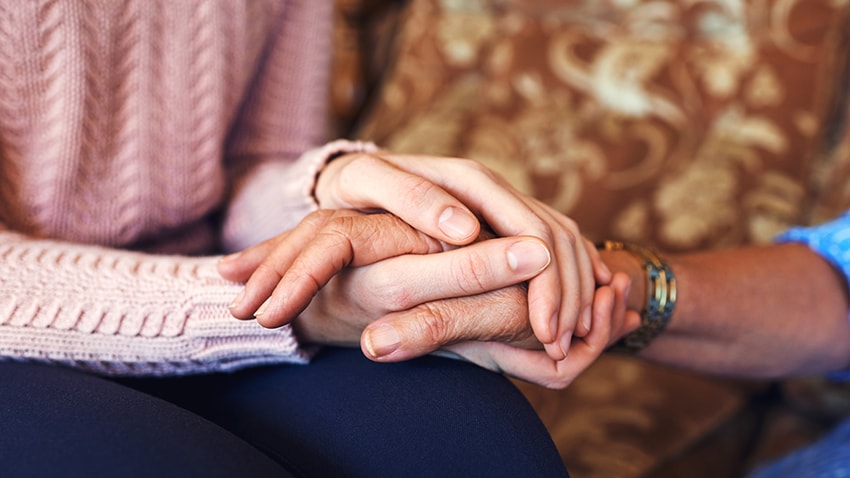Cancer is the second most common cause of death in the US. Cancer is the only disease that can affect any part of our body. That said, there are almost 100 types of cancer in the world.
Every year, millions of cancers are diagnosed that could have been easily avoided by changing lifestyle habits.
While we do not intend to frighten you with such devastating facts, we need to let readers beware of this noxious disease. And in such a process, we would like to put light on various cancer symptoms, signs, best treatment for cancer andcancer symptoms management. Believe it or not, cancer is curable and more importantly can be avoided in the first place.
How does cancer develop- a short intro

Just like our body’s immune system, our body cells have the natural ability to stay close and in contact with each other all throughout our life. These cells have layers attached to other cells and they form layer by layer resulting in our body’s organ system. When these cells tend to lose their property of staying attached to each other, they start to grow in a non-uniform manner. This stage is known as cancer. These cells that lose the ability of limited growth are known as mast cells and continue to grow rapidly until being cured.
There are various factors influencing the development of cancer. These include smoking, tobacco consumption, environmental factors, hereditary issues, drinking and many more. Cancer can also be caused due to harmful radiation exposure.
Cancer symptoms and signs

Talking in general, being fatigue more than usual can be the first slightest sign of cancer in your body. This follows by thickening of a single part of the skin. People with skin cancer or cancer in lymph nodes, breasts, testicles, and other soft tissues often develop lumps as primary signs and symptoms of cancer.
Some other cancer signs & symptoms common for both men and women include:
- Irritating and long-lasting cough or blood-tinged saliva
- Continuous diarrhea as an irregular bowel habit
- The regular occurrence of blood in stool for a long period of time
- Lowering down of blood level without any explained reason
- Enlarged testicles or lumps in testis, often associated with testicular ulcers
Frequent urination, irregular or small quantity of urination
- Blood in the urine
- A change in a mole or wart
- Difficulty swallowing or indigestion
- Swollen glands
- Night sweats or uncommon fevers during nights
- Vaginal bleeding for the delayed time
- Headaches and nonhealing sores
To take control of common cancer symptoms, it is vital to identify them at the right time and visting the doctor at the earliest. You can fight cancer only if it is detected early.
Cancer symptom management

Symptom management is an important part of cancer prevention throughout our lives. Patients suffering from any of the above-symptoms may even suffer from multiple concurrent symptoms that may be moderate or severe. The main principals of cancer symptom management include attaining an aggressive detailed approach.
This shall involve an active approach where you prioritize and identify various symptom pathophysiology. The process involves knowing the root cause of the symptoms, identifying its behavior and getting all the necessary tests.
The regimens for cancer symptom management should be simple and straight forward. The cancer physician should consider a patient’s diagnosis, cost of treatment and the side effects of the drugs or treatment methods used.
The physician should ensure optimal palliation with fewest adverse effects. He should reassess at regular intervals and make one change at a time while incorporating the use of a rescue dose.
It would not be unfair to say here that symptom management is more of a doctor’s duty rather than that of the patient. The physician should know about patients’ medical history and ask about the symptoms in a positive manner.
It is important to know that as a patient you should talk with your doctor in an honest and transparent manner. Underreporting your symptoms will only make things worse in the long run treatment.
Sometimes, doctors ask patients in a medical language that is often misleading to patient. For instance, the term anorexia means loss of appetite but might seem to be a complicated syndrome to a normal patient. Hence, doctor should inform the patient about symptoms in layman language. After collecting the required data, the symptoms should be quantified using consistent tests to facilitate monitoring.
Best cancer diagnosis and treatment

Cancer, unlike another seasonal disease, requires a comprehensive treatment approach that is possible only with an accurate diagnosis. The people who diagnose cancer are professional and trained in a wide variety of medical fields like radiology, genetics, advanced genomic testing, and pathology.
The diagnosis includes specific high profile tests that evaluate the stage and type of the tumor in the patient’s body.
The treatment involves careful and evident-based considerations. The entire case includes a set of treatment options that includes more than a single major therapeutic modality. The main treatment options are systemic, therapy, radiotherapy and surgery. Some other methods include interventional oncology, clinical trials, and precision medicine.
To chose which one is the ideal mode of treatment, the physician makes the selection based on tests and the best existing treatment resource available. To ensure timely and effective treatment, the options should be nicely presented to the patients. Also, the treatment options are done between the providers in a disciplinary manner.
The entire cancer treatment therapy will require close collaboration between the entire cancer-curing team.
Radiation therapy is also an important treatment procedure that shoes admiral results. Since each cancer requires a different approach, the radiation treatment plan is according to the goals and needs of the patient.
In this type of treatment, the radiation in the form of X-rays or radioactive rays may destroy stubborn cancer cells. This helps shrink tumors while inducing several other symptoms. In many cases, radiation therapy is a primary treatment to weaken tumor cells. It is also important in combination with other treatments to alleviate cancer cell growth.
There are various anti-cancer medicines by WHO that are clinically ideal to provide effective cancer-killing properties. The entire cancer treatment requires a strong health system that ensures that the entire course of action is high-quality, safe, effective and easily accessible to patients.
Conclusion
We often fail to recognize the severity of the situation until the catastrophe knocks at our door.
Likewise, in most cases of patients suffering from cancer, it is too late until they are acknowledged by the disease. Hence, taking several precautions and identifying the early onset of the disease is the way out of such problems. And the best thing to make this happen is to stay aware of different cancer symptoms. Their treatment options, and cancer symptom management therapies.
The only well-educated patient can recognize cancer symptoms. With education, awareness and will power, we can defeat cancer and anyone can overcome this disease to lead a healthy life once again.




Hey, very nice site. I came across this on Google, and I am stoked that I did. I will definitely be coming back here more often. Wish I could add to the conversation and bring a bit more to the table, but am just taking in as much info as I can at the moment. Thanks for sharing.
Effective Health Treatment